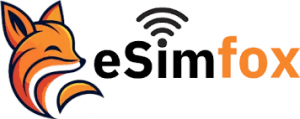
Young Entrepreneurs Face Tough Battle in Global eSIM Market Dominated by Giants
Startups like EsimPrime and EsimFox face tough odds as corporate giants dominate global eSIM visibility.
BARCELONA, BARCELONA, SPAIN, April 4, 2025 /EINPresswire.com/ -- In the rapidly evolving world of digital connectivity, startups founded by young entrepreneurs are facing mounting challenges in staying afloat. In the global eSIM market, fast-growing platforms such as EsimPrime and EsimFox—created by small teams with big ambitions—are finding themselves increasingly pressured by multi-million-dollar companies like Holafly and Saily, whose massive resources and global marketing power leave little room for emerging players.An Expanding Market with Uneven Playing Fields
Recent industry reports highlight an explosive increase in demand for eSIM technology, driven by the rise in international travel, growing reliance on smartphones, and the spread of 5G connectivity. The global eSIM market is projected to surpass $10 billion by 2030, drawing the attention of venture capital firms and tech conglomerates alike.
This financial boom has given large-scale companies a considerable advantage, allowing them to dominate search engine advertising, partner with airports and airlines, and flood digital platforms with aggressive marketing strategies. For small businesses like EsimPrime, this means competing not just on technology—but on visibility and survival.
Startups: Innovation and Agility Against Corporate Power
Despite limited funding and smaller teams, startups like EsimPrime and EsimFox continue to challenge industry norms by offering flexible, user-friendly services tailored to modern travelers.
“We know we don’t have the same advertising budgets as the big names,” said Issam B., founder and CEO of EsimPrime. “But we believe customers care about trust, transparency, and a personal experience—and that’s where we stand out.”
These smaller players often adopt lean operating models, focus on customer-centric service, and are quick to adapt to market shifts—qualities that, in theory, should help them compete. But in reality, these advantages are often overshadowed by the dominance of larger competitors.
The Unseen Struggles: Visibility and Suppression
While technical features may be similar—or in some cases superior—the smaller companies often find it nearly impossible to gain market share when competing with corporations that can spend thousands of dollars per day on digital advertising. In some markets, larger players intentionally undercut prices, run promotional campaigns that small startups cannot match, and even attempt to acquire smaller rivals before they grow.
“This industry rewards visibility more than quality,” Issam added. “Even if your product is great, if no one sees it, it might as well not exist.”
Lack of Regulatory Protection
Industry observers have noted that there is little to no regulation protecting small digital service providers in the eSIM ecosystem. Unlike traditional telecoms, the eSIM space is relatively new and often unregulated. This allows larger companies to dominate platforms and search engines, making it difficult for smaller players to compete on fair terms.
Moreover, because most eSIM services are digital and cross-border, national support programs or antitrust regulations are often inapplicable.
Startup Strengths: Why the Battle Isn’t Over
Still, startups haven’t given up. What they lack in funding, they make up for in flexibility and innovation. Many young companies are developing highly responsive platforms, focusing on multi-device support, personalized service, and rapid problem-solving.
In some cases, startups are also more transparent about pricing and coverage, avoiding confusing marketing tactics often used by larger providers. These qualities are increasingly resonating with customers looking for reliable alternatives.
A Growing Call for Consumer Support
A rising number of users are becoming aware of the importance of supporting local and independent brands. The concept of "conscious consumption" is beginning to enter the digital services space, with some travelers actively seeking out smaller eSIM providers to support innovation and diversity in the market.
Community-driven platforms, travel blogs, and influencer partnerships are now helping small eSIM startups find their niche audiences without spending millions on advertising.
Policy Changes Needed for a Fairer Future
There is a growing call for industry transparency, equal access to marketing platforms, and fairer digital advertising rules that prevent monopolistic behavior. If regulations were in place to ensure visibility for startups, the market could see a more balanced competition based on service quality rather than just financial might.
Conclusion
The eSIM market is booming, but it’s also becoming increasingly challenging for startups to survive. While giants like Holafly and Saily continue to dominate, young companies like EsimPrime and EsimFox remain committed to offering personalized, fair, and innovative solutions.
They may not have the largest budgets—but they do have something money can’t buy: grit, creativity, and the determination to create lasting change in the digital connectivity space.
Sherrerlyn Marie Clark
Esimprime Groups LLC
email us here
Distribution channels: Business & Economy, Companies, Technology, Telecommunications, Travel & Tourism Industry
Legal Disclaimer:
EIN Presswire provides this news content "as is" without warranty of any kind. We do not accept any responsibility or liability for the accuracy, content, images, videos, licenses, completeness, legality, or reliability of the information contained in this article. If you have any complaints or copyright issues related to this article, kindly contact the author above.
Submit your press release

